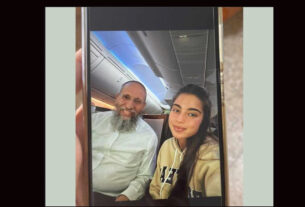The organizers of the Eurovision Song Contest have revised this year’s voting rules after broadcasters from several countries accused Israel of interfering in last year’s audience poll.
The new guidelines, which were announced Friday, reduce the number of votes allotted to each fan from 20 to 10, split fan votes with input from a professional jury and discourage promotional campaigns by third parties, according to Eurovision.
“No broadcaster or artist may now directly engage with or support campaigns by third parties — including governments or their agencies — that could distort the vote,” Eurovision director Martin Green wrote in a statement.
The European Broadcasting Union, which runs Eurovision, also pledged to “expand the contest’s advanced security systems” and monitor fraudulent activity.
While the announcement of the new voting guidelines did not mention Israel, it appeared to have been spurred by outcry following last year’s competition, where Israel’s Yuval Raphael took second place after winning a notable lead from the audience vote. Social media posts had exhorted supporters of Israel around the world to vote as many times as possible.
Following her win, the public broadcasters from Spain, Ireland, Belgium, Iceland and Finland called on the European Broadcasting Union to conduct an audit of its audience voting system, with some alluding to Israel manipulating the vote. (Green rejected the allegations of Israeli influence at the time.)
Several European countries, including the Netherlands, Slovenia, Iceland, Ireland and Spain, also announced in September that they would or may boycott the competition if Israel is allowed to participate.
Following the announcements, the European Broadcast Union announced it would allow member countries to vote on Israel’s participation, but changed its plans following the U.S.-brokered ceasefire in Gaza last month. The broadcasting union plans to discuss Israel’s participation at its December meeting.
The chancellor of Austria, which is set to host this year’s competition, has also reportedly pressured its public broadcaster not to host the competition if Israel is barred.
“I truly hope that this robust package of measures provides assurance for artists, broadcasters and fans alike,” said Green of the new voting guidelines. “Above all I hope it allows for the Contest to acknowledge the sometimes-difficult world in which we live but resist attempts to turn our stage into a place of geopolitical division.”
Power the news that matters to you. Before 2025 ends, help (JR)’s independent, award-winning newsroom document Jewish history in real-time.




